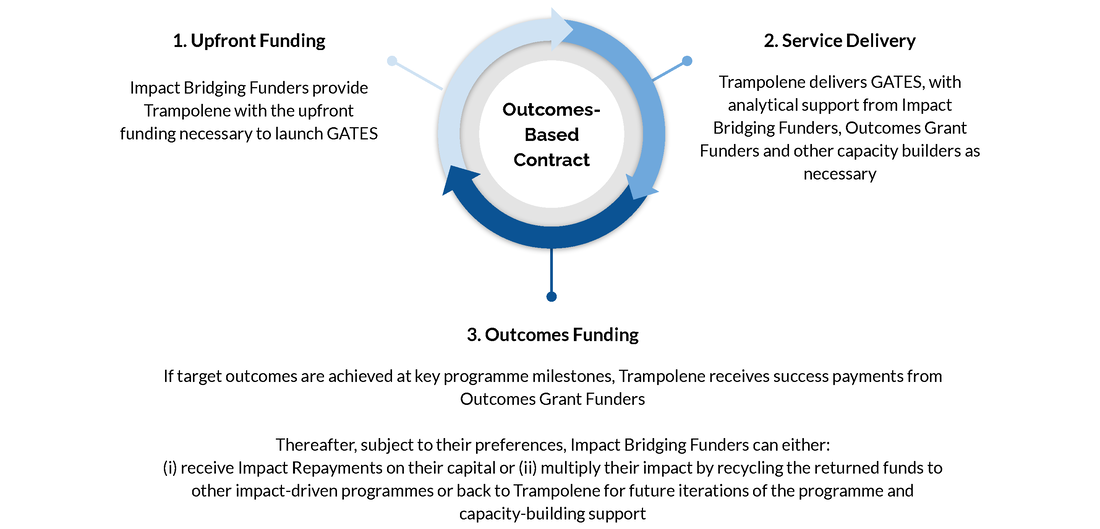Impact Bridging Funding
for Employment Support Programme
To catalyse change, we are willing to take calculated philanthropic risk and experiment with new approaches that have the potential to meaningfully transform the social sector.
We are partnering Tri-Sector Associates as an Impact Bridging Funder in an innovative outcomes-based contract to help Trampolene launch its Growing Alternative Talent for Engineering Sector (GATES) programme for persons on the autism spectrum to access job opportunities.
Through our support, we hope to help galvanise the broader development of financing innovations within the social services sector and foster greater, more effective cross-sector collaborations for impactful change.
Outcomes-based contracting is an innovative social financing approach where programme implementors are paid for the social services they provide based on the outcomes achieved by the programme, as opposed to the costs or activity outputs of their services. With upfront funding secured at the outset, outcomes-based contracts help to safeguard programme implementors against heavy upfront costs and allows them to experiment with innovative and experimental approaches that show promise.
The outcomes-based contract launching the GATES programme operates as follows:
The outcomes-based contract launching the GATES programme operates as follows:
The GATES programme seeks to develop tertiary-educated persons on the autism spectrum who are less work-ready for successful, high-skilled careers in the engineering sector. It does so by providing training and support designed to improve both their hard and soft skills, to ensure they are qualified and adaptable at inclusive workplaces.
The GATES programme will also work closely with employers and family members to create a conducive and supportive environment where programme participants can maximise their potential and thrive in their careers.
The GATES programme
Desired outcomes:
- Successful job placement and retention (of at least 3 months) for 32 participants
- Further retention (of 6 more months) for 21 of the above 32 participants




